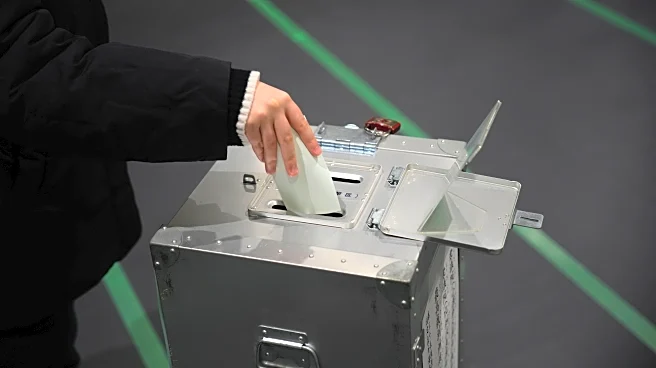What is the story about?
What's Happening?
President Donald Trump has reiterated his intention to impose a 100 percent tariff on foreign films, a threat he initially made in May. In recent posts on Truth Social, he also suggested imposing substantial tariffs on countries that do not manufacture their furniture in the United States. The president's statements did not include specific details about the implementation of these tariffs, such as the timeline, the exact goods affected, or the legal basis for such actions. Previously, Trump had labeled imported films as a 'National Security threat' due to their potential for 'messaging and propaganda.' This suggests he might invoke a 1962 trade law provision, previously used for tariffs on steel and aluminum imports. However, the Commerce Department has not initiated the necessary investigation for these tariffs. The Motion Picture Association, representing the film industry, has not commented on the matter. The U.S. film industry currently enjoys a trade surplus, exporting more films than it imports.
Why It's Important?
The proposed tariffs could significantly impact the U.S. film industry, which benefits from a substantial trade surplus by exporting more films than it imports. If implemented, these tariffs could disrupt international film distribution and production, potentially leading to increased costs for American studios that film abroad. This move could also strain trade relations with countries that host American film productions, such as Canada, the UK, and Australia, which offer incentives for filming. Additionally, the lack of clarity on how tariffs would apply to films, considered services rather than goods, raises questions about the feasibility and enforcement of such measures. The furniture import tariffs could similarly affect international trade dynamics, potentially leading to retaliatory measures from affected countries.
What's Next?
The next steps remain uncertain as the Trump administration has not provided a timeline or detailed plan for implementing these tariffs. The lack of a Commerce Department investigation suggests that any immediate action is unlikely. Stakeholders in the film and furniture industries, as well as international trade partners, will be closely monitoring the situation. Potential responses could include lobbying efforts by industry groups to prevent the tariffs or diplomatic negotiations to address trade concerns. The administration's approach to these tariffs could set a precedent for future trade policies under President Trump.
















